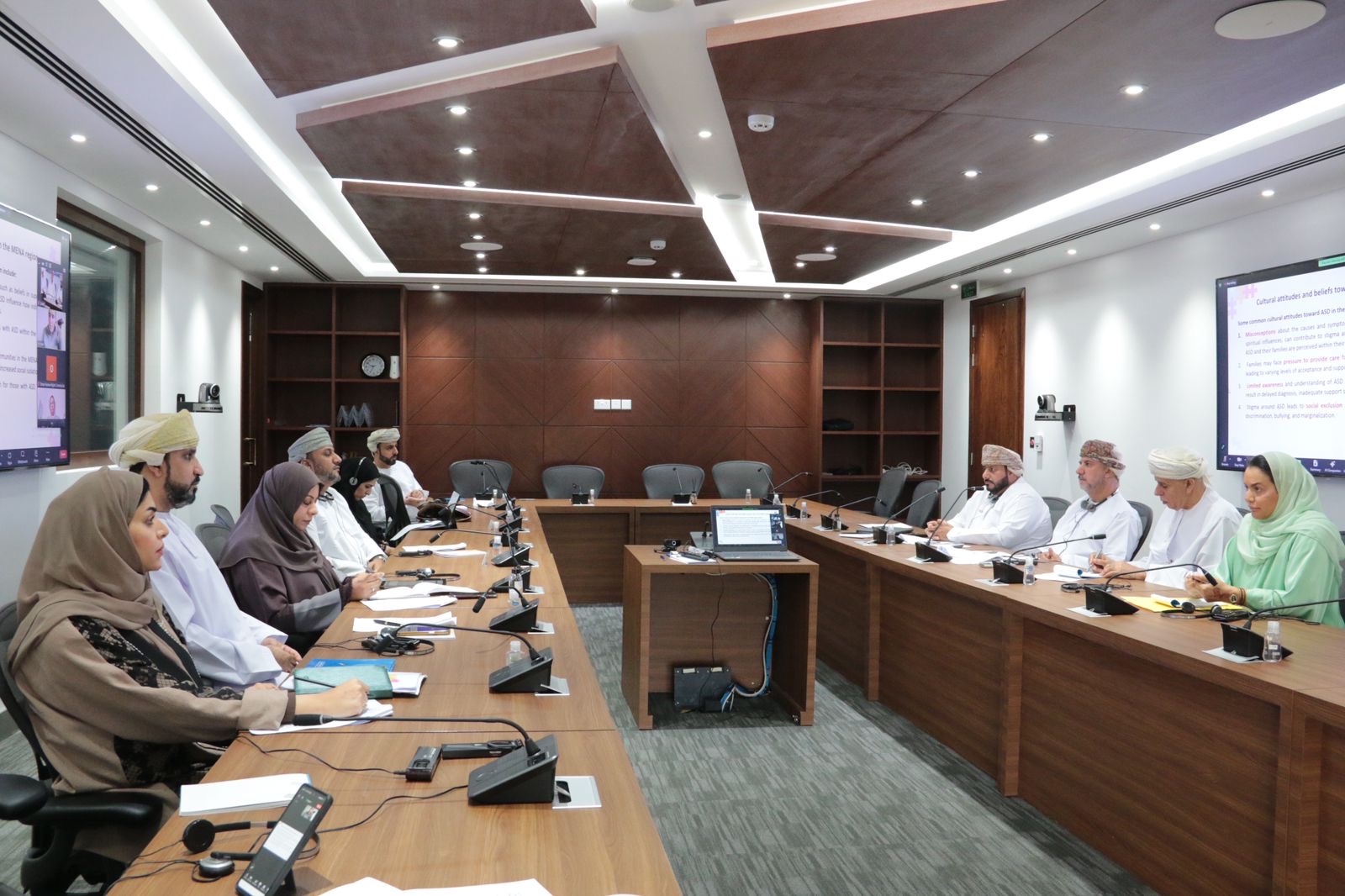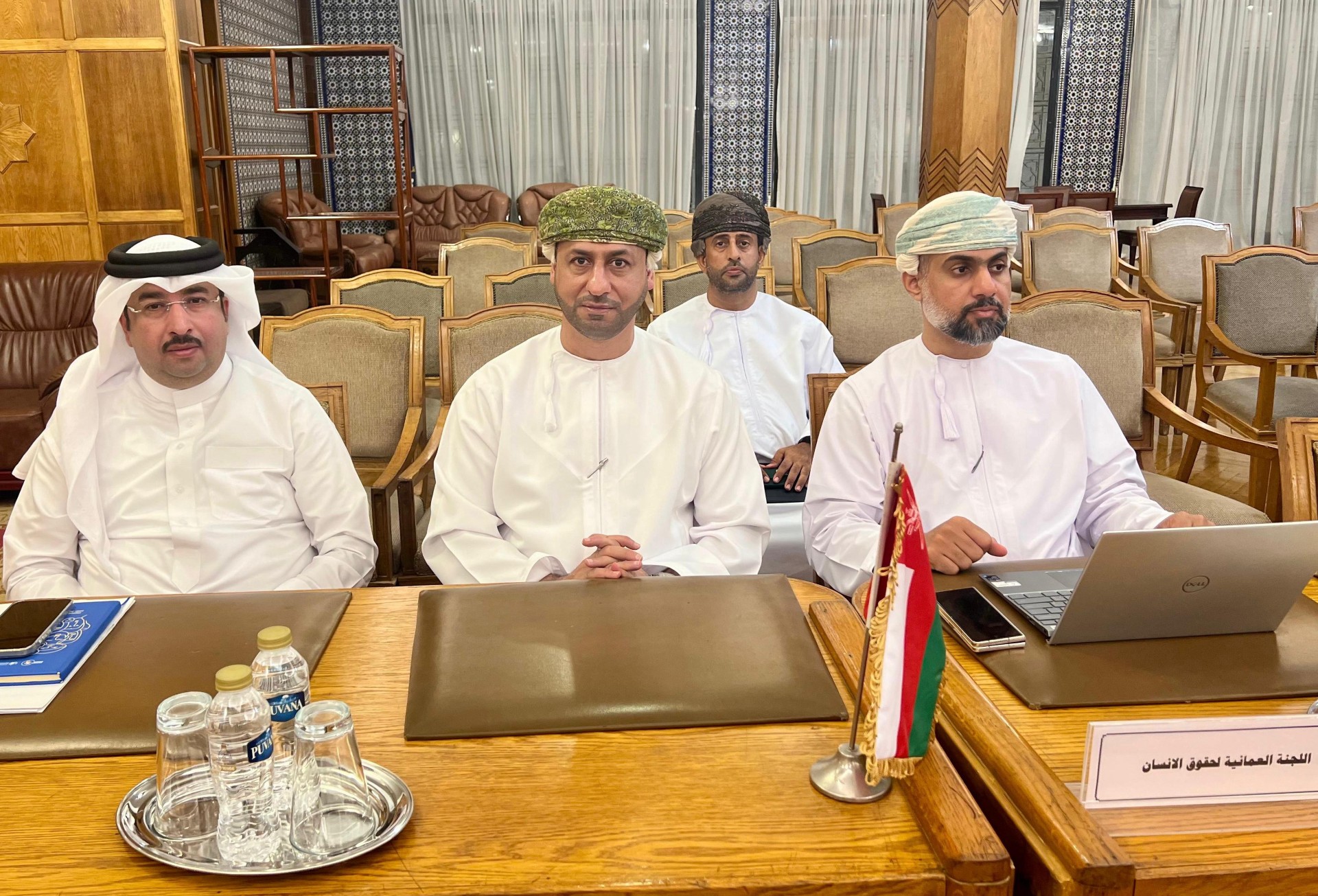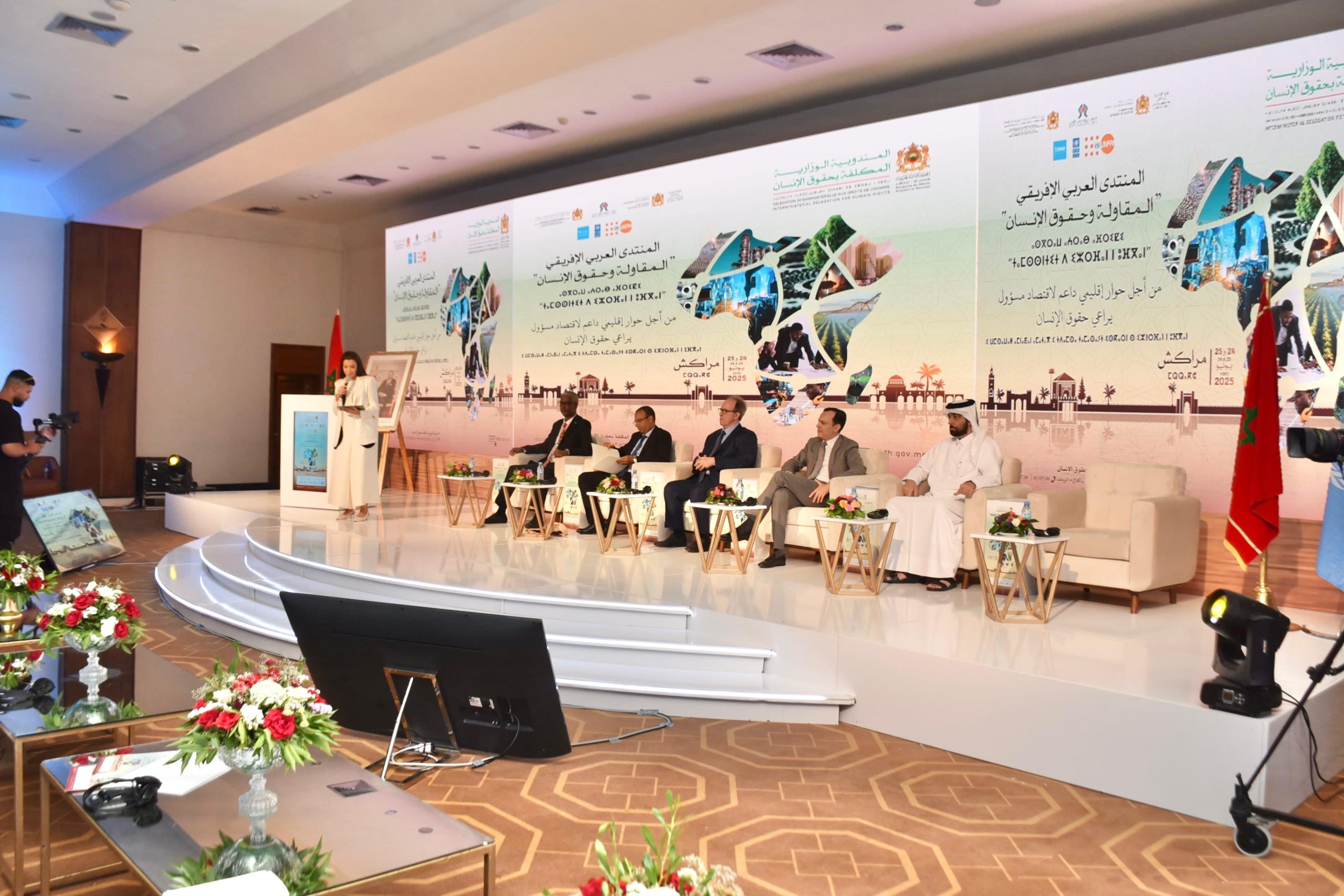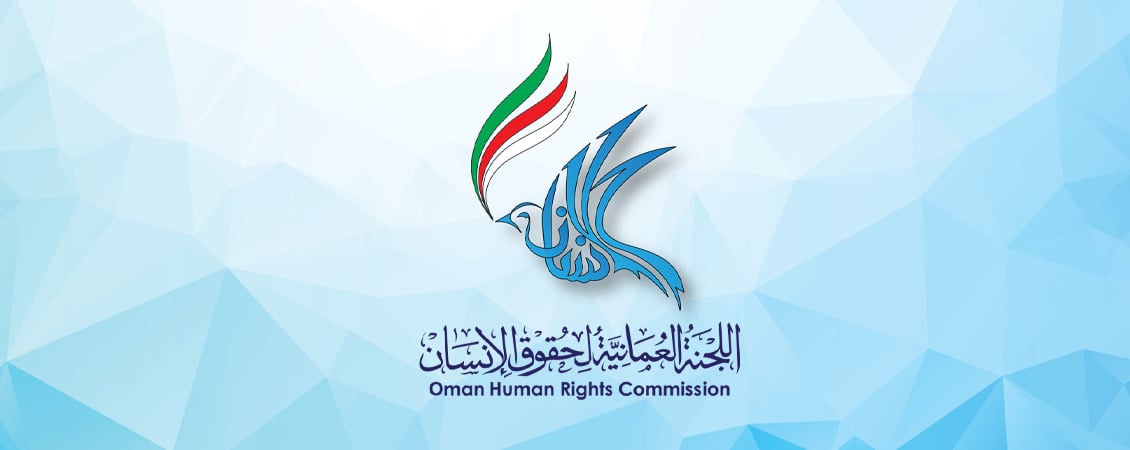Video Conference with Asia Pacific Forum (APF) on Respecting and Supporting the Rights of Individuals with Autism: A National Human Rights Institution (NHRI) Perspective
The Oman Human Rights Commission (OHRC) convened the symposium titled “Respecting and Supporting the Rights of Individuals with Autism: A National Human Rights Institution (NHRI) Perspective” via video communication technology. This symposium was facilitated in partnership with the Asia-Pacific Forum, coinciding with the world’s celebration of World Autism Day. The event attracted the participation of numerous NHRIs and regional networks within the Global Alliance, alongside a cadre of specialists, researchers, and representatives of civil society from inside and outside Oman .
Her Excellency Maryam bint Abdullah Al-Attiyah, the GANHRI Chairperson, delivered an address during the symposium’s opening session. In her speech, she emphasized, “The escalating indicators of autism spectrum disorders have spurred governments to enhance their endeavors in early autism detection, particularly as many nations are signatories to the International Convention on the Rights of Persons with Disabilities (CRPD).”
She further remarked, “Autism spectrum disorder stands as one of the priorities in the GANHRI and OHCHR programs. The role of NHRIs encompasses bolstering policies aimed at legislative advancement, and advocating for and aiding the most vulnerable segments of society.”
Kairn Fitzpatrick, Executive Director of the Asia Pacific Forum, delivered an address underscoring the imperative that individuals on the autism spectrum are entitled to equal rights as neurotypical individuals. He emphasized the role of NHRIs in safeguarding these rights, emphasizing the importance of understanding and surmounting the challenges encountered by individuals with autism.
In his address, Prof. Dr. Rashid bin Hamad Al-Balushi, OHRC Chairman, underscored that the symposium’s organization aligns with the OHRC mandate as outlined in its system. This includes engaging with international human rights mechanisms, participating in regional and international human rights gatherings, and organizing conferences, workshops, and seminars on human rights matters. The OHRC aims at advancing and protecting human rights in accordance with the Basic Law of the State and international treaties and conventions.
He further highlighted that this seminar falls within the purview of the OHRC adherence to the competencies and responsibilities stipulated in the Paris Principles, encompassing collaboration with human rights institutions, particularly regional institutions and other national institutions dedicated to advancing and protecting human rights. This collaboration entails aiding in the formulation of human rights programs and research, contributing to their implementation, and enhancing societal awareness regarding diverse human rights issues and subjects.
During the symposium, Dr. Khalid bin Saif Al-Muqrashi delivered a working paper focusing on the significance of understanding autism and its spectra, along with the social implications for individuals with autism and their families. In his discourse, he elucidated the definition of the autism spectrum, delineated the traits and skills associated with individuals diagnosed with autism spectrum disorder, and underscored the significance of comprehension regarding the rights of individuals within this spectrum. Furthermore, he expounded on the advantages of societal inclusion and empowerment for families of people with autism spectrum disorder.
Dr. Mustafa Attia, Disability Inclusion Advisor at the UNICEF Regional Office, delivered a presentation focusing on the rights of individuals with disabilities in accordance with international laws. In his discourse, he elucidated the concept of disability and provided examples of programs and strategies aimed at catering to the needs of individuals with disabilities, including those within the autism spectrum disorder.
Addressing challenges and best practices to protect and advance the rights of individuals with autism, Mrs. Zahraa Al-lawati, a researcher representing civil society, underscored various challenges encountered by individuals on the autism spectrum. These encompass economic, educational, nutritional, and social challenges, alongside medical and behavioral challenges. She highlighted numerous strategies aimed at protecting the rights of this group, including establishing a legal definition of autism, ensuring access to suitable education and healthcare services, and fostering research endeavors within the realm of autism.
The Philippines NHRI shared its insights into the challenges confronting individuals with autism in the country. These challenges were encapsulated in the inadequate comprehension of the traits exhibited by autistic individuals, instances of discrimination and bullying directed towards them, the escalating prevalence of autism cases, and the inadequacy of educational services attributable to the shortage of trained educators capable of dealing with autistic children.
Withinthe framework of challenges, Dr. Fawzia Saleh from the NHRI of the Kingdom of Bahrain outlined the initiatives and projects undertaken by the institution aimed at protecting the rights of individuals with disabilities, particularly those within the autism spectrum.
Bushra Amraoui, Head of the Department of Protection of Persons with Disabilities and Anti-Discrimination at the National Council for Human Rights in Morocco, addressed the status of individuals with autism in the Kingdom of Morocco, highlighting the legal and legislative advancements that have protected their rights. She also outlined the strategies implemented to uphold the rights of individuals with autism spectrum disorder.
During his intervention, His Excellency Sultan bin Hassan Al-Jamali, Secretary-General of the Arab Network for National Human Rights Institutions, expressed the network’s preparedness to support all projects aimed at enhancing training in the sphere of protecting the rights of individuals on the autism spectrum.
At the conclusion of the symposium, participants reached a consensus on the significance of supporting endeavors within the realm of autism spectrum disorder studies. They emphasized the importance of integrating and fortifying strategies among national NHRIs, expanding partnerships between these NHRIs and civil society to facilitate training for children with autism and their families, and striving to develop programs tailored to individuals with disabilities. Moreover, they pledged support for all initiatives concerning autism, advocated for the review of laws and agreements to encompass individuals within the autism spectrum, and proposed augmenting the frequency of seminars and training workshops to disseminate awareness of autism spectrum disorder throughout society.





